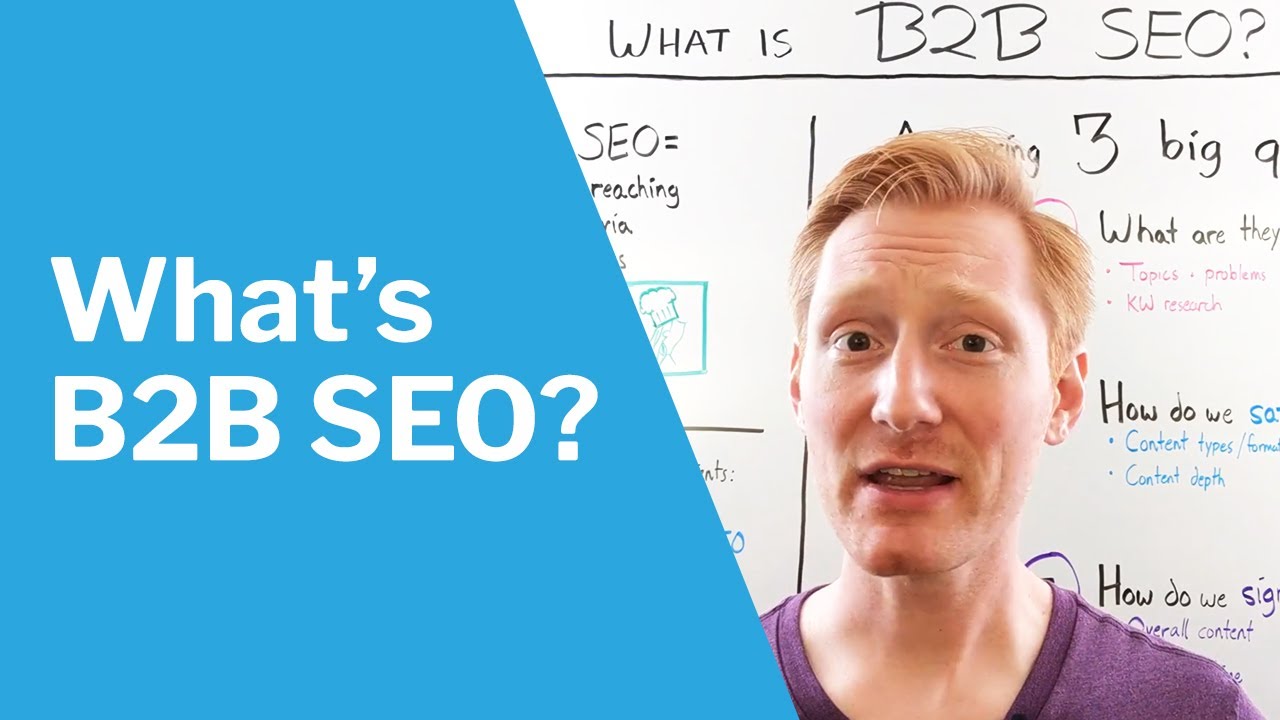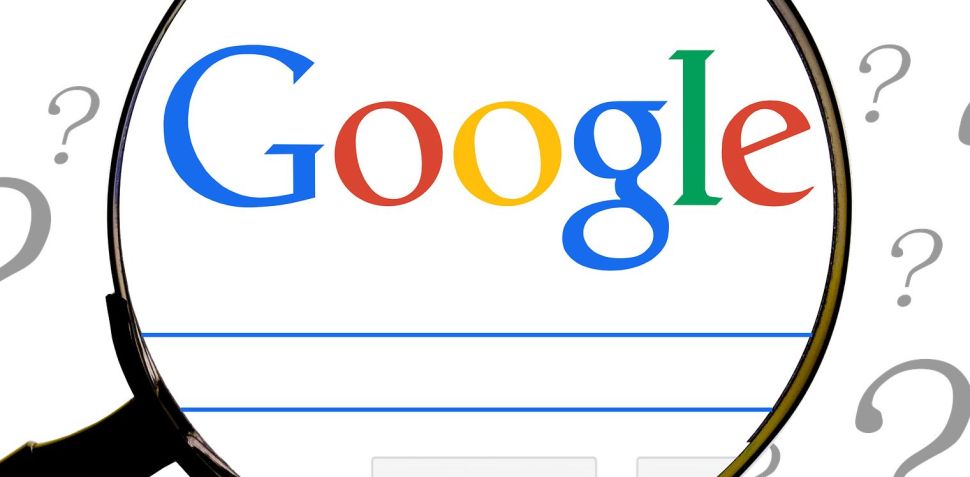SEOis one of the most essential routes for B2B firms to acquire new customers. Having great organic visibility throughout the purchase cycle is a tried and true approach to boost growth.
But where do you begin when putting together a B2B SEO strategy?
Organic development for a B2B firm has its own set of problems. There are distinctions between starting a B2B and a B2CbusinessSEOplan. It is critical to understand how toapproach the channel while keeping these distinctions in mind since this is the key to generating success.
In this article, we'll dissect the components of a comprehensive B2B SEOplan and examine the major distinctions between B2B and B2C SEO.

What is B2B SEO?
What Is B2B SEO?
B2B SEO is the online activity of reaching out to a company's decision-makers using various tactics such as keyword research and page metadata. A good strategy implies that someone who is actively looking for the product or service you're selling visits your company's website.
B2B SEO consists of several components. Each one contributes to your overall plan. If you fall short in one area, it implies you still have the potential to improve your site.
- Technical SEO. These are the changes you make to the foundation of your website. It addresses issues such as your XML sitemap, load speed, and responsive design.
- ContentSEO. B2B content marketingfor SEO is the process of creating content based on research on user demands and search intent. You go through the research, ideation, content development, and promotion processes.
- On-page SEO. This is the process of optimizing the content itself. It comprises the meta description and title tag on a website or blog post, alt text on pictures, and organizing the material such that information is useful to both the user and search engines.
- Off-page SEO. Having high-quality pages connect to you on a certain topic, often known as backlinks, enhances your perceived competence in that field. It also involves participation on the page or post. The links in the Affirm blog article below demonstrate how to use off-page SEO.
These four SEO categories work together to form your overall SEO strategy. Now we'll go through how to use these functions in a B2B marketing planin greater depth.
What Is The Difference Between B2B And B2C SEO?
B2B and B2C SEO have a fundamental goal: you want people searching for you to find you. In fact, however, it is far more complicated, and the strategic approach is different. Here are four major distinctions between B2B and B2C SEO.
- More time in each sales stage. The phases of a B2B salesfunnel are the same as those of a B2C funnel, but the time spent in each one is significantly longer. A decision-maker in B2B spends a significant amount of time in the research stage, gathering information about various options. There is frequently a substantial back-and-forth between the seller and the prospective client, during which the prospective client will study case studies, see product demos, and negotiate a contract. Because of the length of time and the varying demands of each stage, a variety of materials is created for each stage in order to captivate the possible customer.
- Don’t ignore low-volume and long-tail keywords. Another distinction in B2B SEO concept generation is how you approach keywords. In B2C, you want a large number of individuals to search for your product type and then purchase it. It is critical to rank well infrequent keyword searches. Low-volume keywords are frequently targeted in B2B SEO. These are specialized and will only appeal to a tiny percentage of searchers. However, they are the individuals who are most interested in the information you offer. Long-tail keywords refer to these very specialized phrases.
- Low conversion rate. The conversion rate goes hand in hand with the length of time spent in each sales stage. Because so much time is spent obtaining information, it follows that a great deal of material is also consumed. But all of that material isn't going to result in a buy right away. It's unusual for a corporate decision-maker to explore a page and then settle on a product. This leads to the necessity for B2B SEO content strategyto be strategic.
- Content for decision-makers. When you create blog posts or landing pages, you aren't generally writing in the same informal, fun, eye-catching tone that you would for B2C material. B2B content tends to lean toward the informational, professional, and data-driven. Many various forms of material are used, each focused at a particular stage of B2B sales. Frequently, the content is also particular.
Here Are The Effective Tips On Creating B2B SEO Strategy
Now that you understand the distinctions between B2C and B2B approaches to SEO, it's time to implement or review your plan.
When compared to spending all of your attention on one part of your SEO strategy, having every piece of your SEO approach function together is the most successful.
Having content appear in a relevant search won't help you if the website doesn't load promptly. And selecting high-volume keywords at random will not help you reach the appropriate individuals unless you have a better understanding of your audience.
Make Buyer Personas
Creating buyer personas is an important aspect of performingB2B market researchfor your organization.
A buyer persona, like a customer persona, describes who they are, what industry they work in, what position they hold, who they contact before making a choice, and other facts. The more information you have on the customer persona, the better your content will be.
Make a list of questions you need to know about each consumer before creating a buyer persona. Create a template for it so you can quickly fill it up for each persona.
Proper Keyword Research
No B2B SEO plan can function without thorough keyword research, because SEO for B2B is primarily concerned with optimizing our content to rank for certain keywords.
Having stated that we should do our keyword research using the following guidelines:
- The keyword should be relevant and well-known among your target audience. This is mostly determined by tracking monthly search traffic.
- The keyword should be related to your brand and its products/services. Not all terms popular with your target demographic will be relevant to your brand.
- The competition for the desired term should be manageable based on your available budget and schedule. The more popular the keyword/query, the more fierce the competition, thus striking the appropriate balance is critical.
Optimize Your Website And Pages
Improve your technical and on-page SEO. Depending on how your website is created, it may have had SEO optimizations built-in, or you may require aid from developers to improve it. WordPresssites have a plethora of SEO plug-ins to select from.
Sites designed with off-the-shelf themes may be more difficult to customize with the nuances you need to maximize your content.
Website and on-page optimization consists of, but is not limited to, the following:
- Image compression
- Page load speed
- XML sitemap
- The page title tag, meta description, URL structure, header tags in the content, and picture alt text Above is an illustration of the significance of picture alt text. Because the search for office printers isn't particularly precise, Google suggests other keywords consider. However, you'll see that this search result already produces a plethora of product links and photos of office printers.
- The importance of alt text inaccessibility cannot be overstated. Search engines continue to place a premium on providing a positive overall user experience. While accessibility isn't an 'official' ranking criteria, having a bad site performance that portions of your audience can't utilize will almost certainly result in fewer links, hits, shares, and overall search exposure.
- Including links to other internal pages.
- Repeated use of distinct keywords you wish to rank for, such as repeated–but natural–use of primary keywords (keyword density), keywords in informative headers, and variants or secondary keywords for readability and additional search targeting.
Content Development
B2B SEO is all about content. Your SEO success will be limited by the strength of your content, not the other way around.
That is, no amount of optimization will help weak, low-quality material rank better on the SERP, whereas high-quality and relevant content may rank higher even without any particular SEO optimizations.
How can we tell if a piece of material is 'good' for SEO? The key is to focus on how we can give value to our target audience through content rather than appeasing Google and other search engines.
While B2B content production may be a fairly vast subject in and of itself, here are some best practices to follow:
- Perform a fast Google search for your desired term and look at the first-page results. These are your rivals, and your goal is to create content that outperforms them. Analyze their structures, flow, length, and readability, and strive to create something better while keeping your target audience in mind.
- Make sure your material follows a logical structure: introduction, difficulties, answers, and conclusions. Make certain that your posts are not promotional in nature.
- Throughout the article, naturally, incorporate your goal keywords. Again, concentrate on providing useful information to your human readers.
- Include external/outbound links in your post to back up your assertions and views. Also, remember to connect to your own material (internal links) and have a strong internal linking system.
- Remember to add different types of media(pictures, infographics, charts, and video) to keep your readers interested.
However, even when you've generated high-quality, relevant, and helpful content, your work isn't over, as we'll see below.
Promote Your Content
Having high-quality backlinks can only help your website appear more authoritative. Off-page SEO comprises both backlinks to your website and social mediaposts.
However, this aspect of B2B SEO is more challenging since it is less under your control. Cold contacting a firm and asking for a link to your blog article may be regarded as impolite, and it is unlikely to be a smart use of your SEO team's time.
Instead, you have some additional choices to explore. Create a B2B social plan that involves promoting your existing content.
How can businesses learn about that fantastic white paper you spent days crafting if you don't publicize it everywhere? Don't wait for a businessto visit your site before sharing that piece of content.
Similar to how you approach social media material, providing high-quality, helpful content that is naturally shareable may help it earn links organically as people find it valuable.
Using additional resources, such as a public relations firm or influencers, might also enhance your chances of obtaining backlinks. Product evaluations, social network suggestions, and CEO interviews in publications are all examples of off-page SEO tactics.
Is SEO Good For B2B?
SEO is one of the most essential routes for B2B firms to acquire new customers. Having great organic visibility throughout the purchase cycle is a tried and true approach to boost growth.
How SEO Can Grow Your Business?
When consumers begin to trust your brand, your reputation grows, increasing the value of your brand. It is a necessary component for the success of your business. SEO helps you to increase the value of your brand, and as your worth grows, you have more possibilities to attract more clients to your target market.
What Is A Good SEO Plan?
An SEO strategy is a thorough plan for increasing a website's search enginerankings in order to attract more organic visitors. This approach should be built on multiple pillars, including technical SEO, content strategy, on-page SEO, link development, and user experience.
How Effective Is SEO?
70% of marketers believe SEO is more effective than PPC. Google's advertising solutions benefitted over 1.3 million companies, internet publishers, and NGOs throughout the country. 61 percent of marketers say their top inbound marketing objective is to improve SEO and expand their organic presence.
Why SEO Is So Important?
When looking for a service or product online, consumers are more likely to select one of the top five choices presented by the search engine. SEO helps you rank higher in search results and gain more visibility online, increasing the likelihood that potential consumers will go over to your site and convert.


